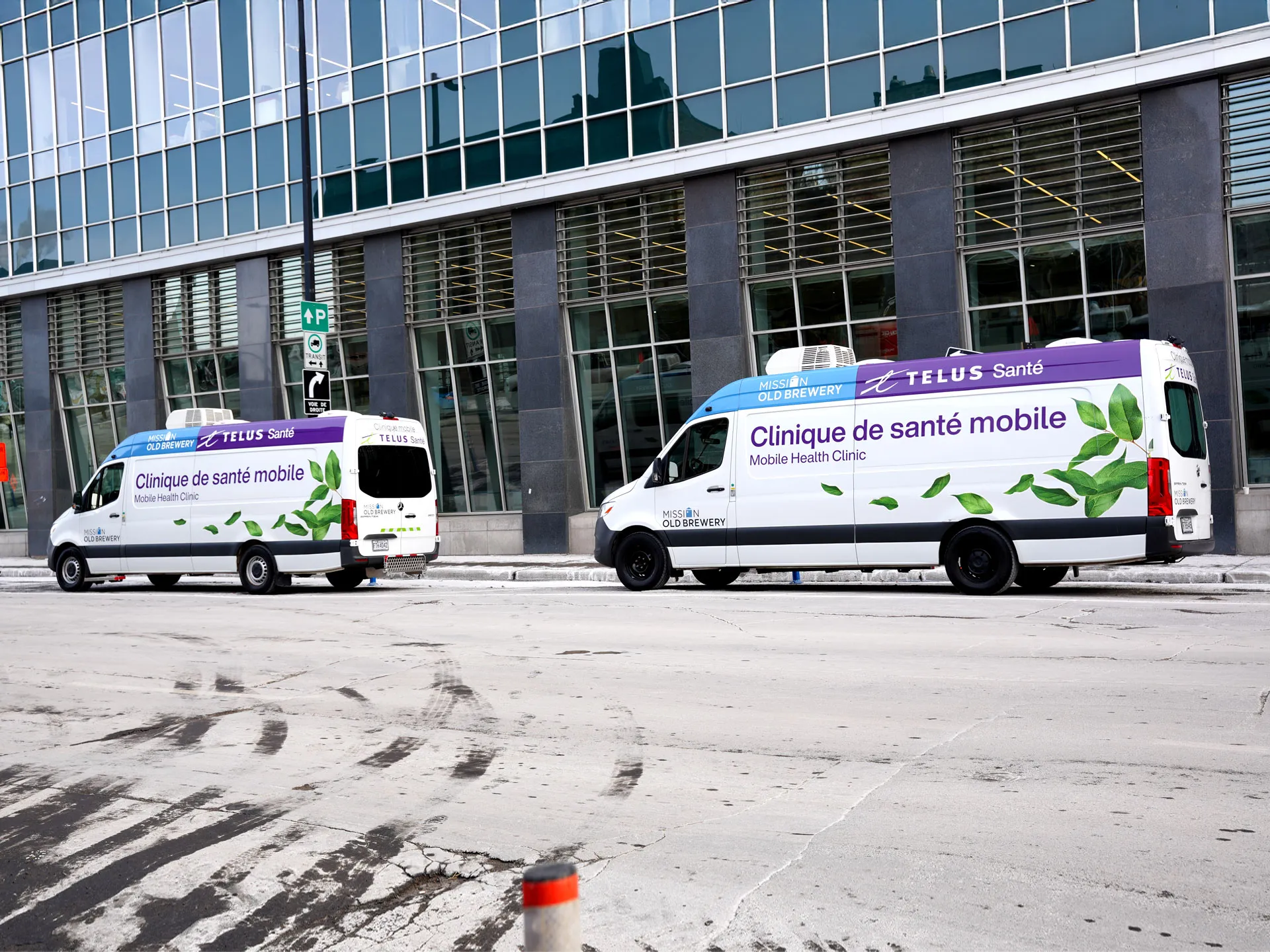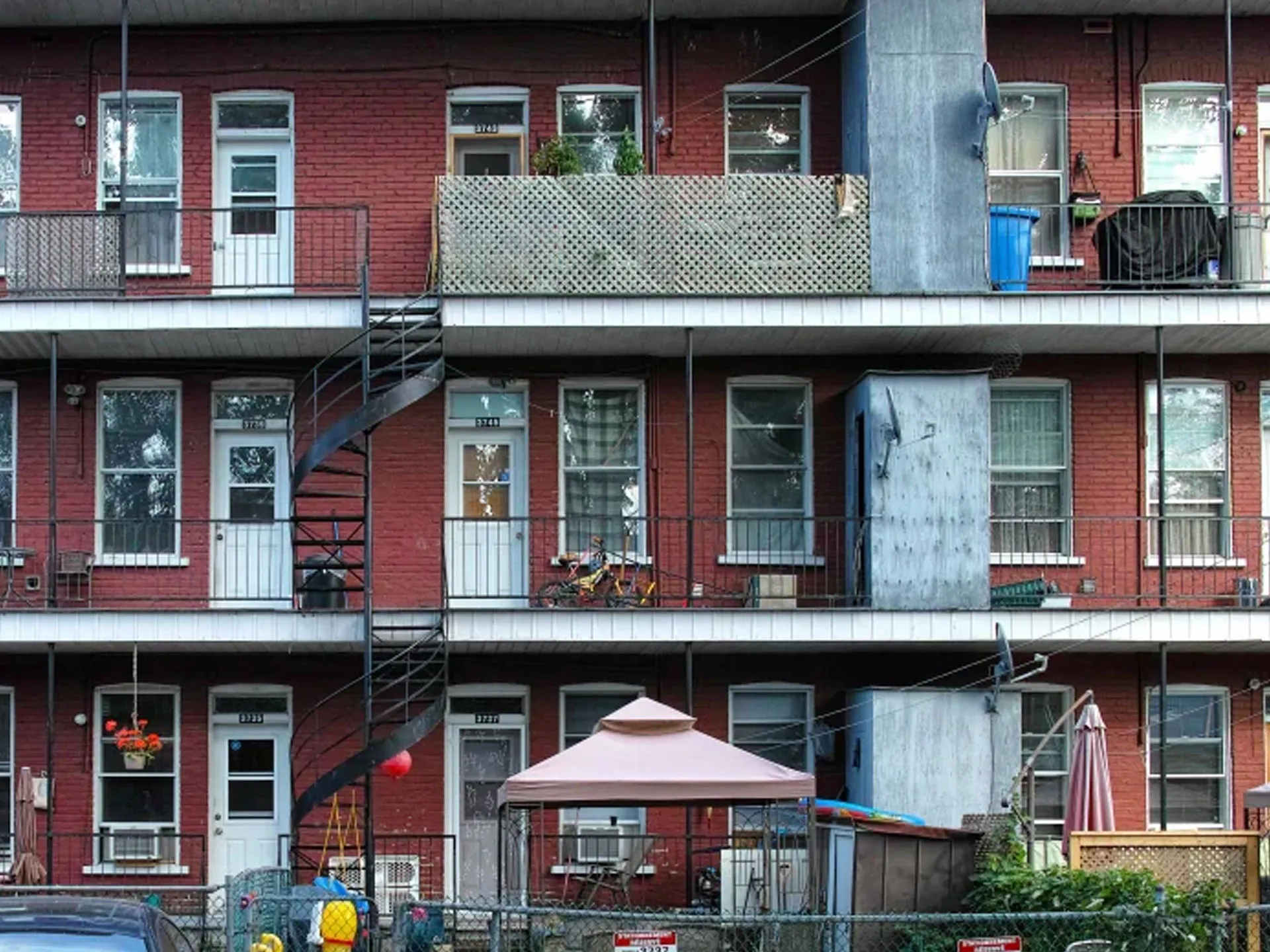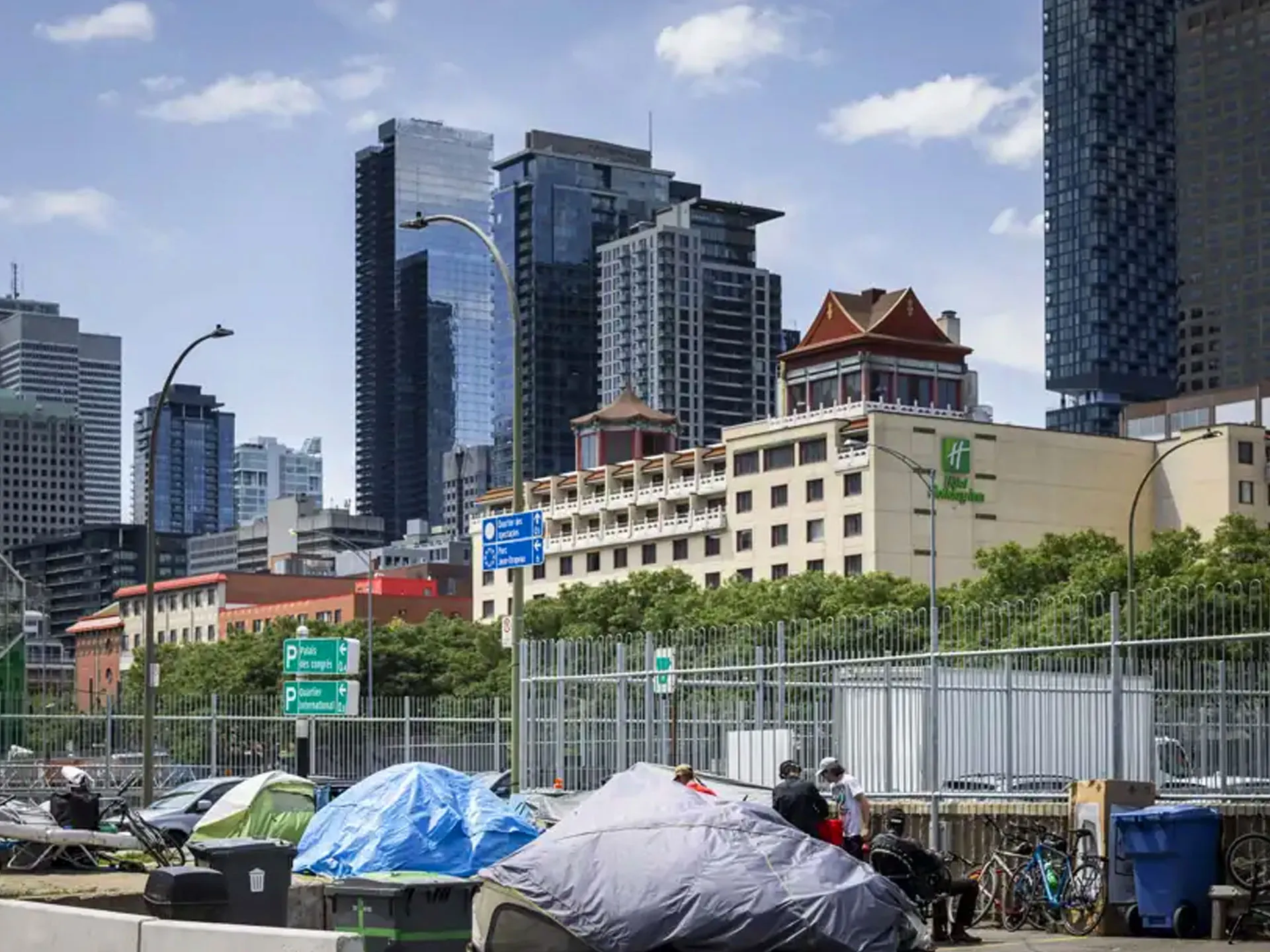
Will a 5.9% rent hike lead to more economic homelessness?

Photo: Olivier Zuida, Le Devoir archives
Signed by:
Georges Ohana, Director of Homelessness Prevention, Old Brewery Mission
Art Campbell, Director, Québec Homelessness Prevention Policy Collaborative
As organizations dedicated to preventing and breaking the cycle of homelessness in Montreal and across Quebec, we are deeply concerned about the Administrative Housing Tribunal’s proposed 5.9% guideline for rent increases in the coming year. While this decision is based on economic factors, it is liable to exacerbate an already severe crisis that is hitting low-income households hard: the rise of economic homelessness. *
Montreal’s rental market is already in a critical state. According to the Fall 2024 Rental Market Report from Canada Mortgage and Housing Corporation (CMHC), the most affordable housing units are in dangerously short supply. The vacancy rate for units renting for under $1,000 is between 0.0% and 0.8% in the Montreal metropolitan. In this already dire situation, finding affordable housing is becoming increasingly challenging for vulnerable households. A further rent increase will only worsen their plight.
To grasp the impact of this rent increase, consider a tenant currently paying $1,000 per month in rent. A 5.9% increase that brings the rent to $1,059 means an extra $59 per month and more than $700 per year. While this may seem modest, it can have devastating consequences for many low-income households. It could force people already on the financial edge to choose between paying the rent and meeting other basic needs, such as food or health. Those in precarious financial and social situations may find themselves pushed into economic homelessness—often for the first time in their lives.
Urgent action to prevent homelessness
If we as a society don’t do more to control rent increases, we shouldn’t be surprised to see both the housing and homelessness crises escalate dramatically starting July 1.
There is broad agreement among stakeholders that steps to prevent homelessness, along with a sufficient and growing supply of social housing and affordable housing, are the only viable path to reducing the scale of this crisis. In 2021, the Old Brewery Mission launched its own Prevention Service. It received nearly 400 requests for assistance in 2023-2024 and the number is expected to grow significantly this year. Meanwhile, the Québec Homelessness Prevention Policy Collaborative, also established in 2021, is developing recommendations and advocating for public policy changes and legal reforms aimed at preventing homelessness in Quebec.
Governments must move swiftly to adopt new public policies to protect access to housing for low-income households. Proven solutions from other jurisdictions include rent controls with a fixed annual cap, rigorous legal processes for approving rent increases, and a publicly accessible rent registry. Of course, such measures must be accompanied by significant ongoing investment in direct support for vulnerable tenants, as well as the creation and preservation of social housing and affordable housing.
Social housing: A critical safety net
Until that happens, social housing will remain a necessary alternative to the private rental market, which is becoming increasingly unaffordable for many people. To meet the most urgent needs, the number of social housing units needs to double in the next 15 years, and governments must commit to substantial investments in this sector now.
The current severe shortage of affordable housing demands concrete action. With the rent increase announced by the AHT in January, the private housing market is becoming even more inaccessible. For decades, community organizations and non-profits providing social housing have carried much of the burden. Now, it is time for the public sector to make this a national priority and step in to provide viable long-term alternatives.
France-Élaine Duranceau, the Minister Responsible for Housing, must act now to ensure that every Quebecer has access to decent, affordable housing. At the very least, she must freeze the AHT’s proposed increase for households with monthly incomes below $1,000. For the well-being of our society as a whole, preventing homelessness must become a public policy priority and access to housing must be protected as a fundamental right.
*Economic homelessness refers to the situation of people who lack stable housing and live in precarious conditions due to financial hardship, often moving from place to place in search of accommodations, resources or work. Low incomes and the rising cost of living are generally cited as the main causes.
Dernières nouvelles
-
 The Old Brewery Mission and TELUS Health for Good launch second mobile
The Old Brewery Mission and TELUS Health for Good launch second mobile -
 Homelessness in the downtown core: We must house, care and innovate
Homelessness in the downtown core: We must house, care and innovate -
 Meet Jean-François Dagenais, Vice President of Finance, IT and Facilities
Meet Jean-François Dagenais, Vice President of Finance, IT and Facilities -
 Old Brewery Mission unveils new employer brand
Old Brewery Mission unveils new employer brand -
 Another resounding success for the Ken Reed Golf Tournament: $334,091 raised for the Old Brewery Mission!
Another resounding success for the Ken Reed Golf Tournament: $334,091 raised for the Old Brewery Mission! - See all news